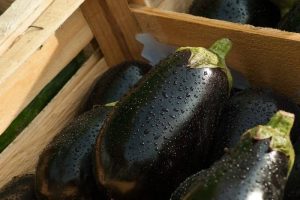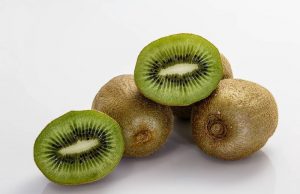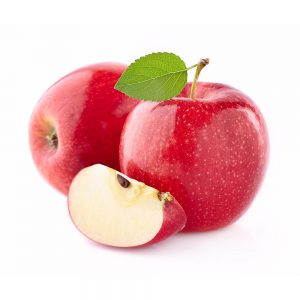eggplant benefits or nutrition facts or taste of organic eggplants is provided here as info.
cooking eggplant in 8 simple way
Some recipes you can make with your fresh beetroot
is cherry a berry ? cherries nutrition facts + recipes + health benefits
Eggplant Origin
Eggplant (Solanum melongena), also known as aubergine or brinjal, is a cultivated crop with a fascinating and somewhat mysterious past. It belongs to the Solanaceae family, which also includes potatoes, tomatoes, and peppers.
Historians believe eggplant was first domesticated in the Old World—likely in India, China, Thailand, Burma, or somewhere else in Southeast Asia. Over centuries, it spread widely across the globe. Today, there are approximately 15–20 different varieties of eggplant, most of which are grown in China.
Health Benefits of Eggplant
Eggplant offers numerous health benefits worth noting:
Rich in many nutrients
High in antioxidants
May reduce the risk of heart disease
May promote blood sugar control
Could help with weight loss
May have cancer-fighting benefits
Very easy to add to your diet
Because it is versatile, eggplant can be enjoyed grilled, roasted, stuffed, or blended into sauces. Furthermore, its mild flavor makes it an excellent ingredient to combine with a variety of herbs and spices.
Eggplant and Pregnancy — Is It Safe?
Eggplants can be eaten during pregnancy; however, as with many foods, moderation is important. As mentioned earlier in the benefits section, they are excellent for the overall development of the baby because they contain vitamin A, vitamin E, and folic acid. The latter is especially vital for the formation of red blood cells in the fetus.eggplant benefits + nutrition facts + taste of organic eggplants
Additionally, eggplants provide niacin, potassium, iron, manganese, and copper, all of which support healthy blood circulation. This combination of nutrients contributes to both the mother’s and baby’s well-being during pregnancy.
Nutrition Facts of Eggplant (per 100 g)
| Nutrient | Quantity | %DV | Nutrient | Quantity | %DV |
|---|---|---|---|---|---|
| Energy | 25 kcal | – | Vitamin A | 23 IU | 0% |
| Carbohydrates | 5.9 g | – | Vitamin B6 | 0.084 mg | 6% |
| Sugars | 3.5 g | – | Vitamin C | 2.2 mg | 2% |
| Dietary fiber | 3 g | – | Vitamin E | 0.30 mg | 1% |
| Fat | 0.2 g | – | Vitamin K | 3.5 μg | 3% |
| Protein | 1 g | – | Calcium | 9 mg | 1% |
| Potassium | 229 mg | 5% | Copper | 0.081 mg | 9% |
| Water | 92.3 g | – | Iron | 0.23 mg | 1% |
| Sodium | 2 mg | 0% | Magnesium | 14 mg | 4% |
| – | – | – | Manganese | 0.232 mg | 10% |
| – | – | – | Zinc | 0.16 mg | 1% |
Flavor Profile
When eaten raw, eggplant has a slightly bitter yet pleasant taste with a spongy texture. Once cooked, however, the flavor becomes milder and richer. At the same time, its flesh develops a soft, creamy consistency, which pairs beautifully with sauces and herbs.
Do You Need to Buy Organic Eggplant?
Eggplant ranks among the vegetables with a relatively low pesticide residue according to the “clean” list. Therefore, if organic options are not available, buying conventionally grown eggplant is generally fine.
Recipe 1: Eggplant Balls
Ingredients (4 servings):
1 tbsp cooking oil or water
1 eggplant, cut into 1-inch (2-cm) cubes
Water or vegetable broth, as needed
1 small onion, diced
1 stalk celery
3 cloves garlic, minced
1 cup (115 g) whole-wheat breadcrumbs
¼ cup (30 g) grated Parmesan cheese
2 tbsp chopped fresh parsley
2 tbsp chopped fresh basil
1 tsp dried oregano
½ tsp salt
½ tsp pepper
1 medium egg
Instructions:
In a skillet over medium heat, add oil or water and the eggplant. Cook until browned, stirring occasionally and adding broth as needed. Transfer to a blender or food processor.
In the same skillet, cook onion and celery until the onion is translucent.
Preheat oven to 375°F (190°C).
Add garlic to the skillet and stir until fragrant, then transfer everything to the food processor with the eggplant.
Pulse until mostly combined but still chunky. Transfer to a large bowl.
Add breadcrumbs, Parmesan, parsley, basil, oregano, salt, and pepper. Stir to combine, then add the egg and mix into a dough.
Shape into 1-inch (2-cm) balls and arrange on a parchment-lined baking sheet.
Bake for 20 minutes, flipping halfway, until golden.
Finally, serve and enjoy!
Recipe 2: Green Stuffed Eggplant
Ingredients:
2 large eggplants (about 1 lb each)
2 tbsp olive oil, divided
1 medium red onion, finely chopped
1 tbsp tomato paste
½ tsp ground cumin
2 cloves garlic, minced
1 cup canned diced tomatoes (no salt added)
1 medium red bell pepper, chopped
½ cup chopped parsley
⅓ cup pitted Kalamata olives, quartered
1 tbsp red wine vinegar
¾ cup crumbled feta cheese
Fresh dill and oregano, for garnish
Instructions:
Preheat oven to 205°C. Cut each eggplant in half lengthwise, scoop out flesh, and leave about a ½-inch border.
Drizzle the shells with 1 tbsp olive oil and roast for 20–25 minutes. Remove from oven and increase temperature to broil.
Meanwhile, heat the remaining oil in a skillet. Sauté onion until softened, then add tomato paste, cumin, and garlic.
Stir in tomatoes, bell pepper, and chopped eggplant flesh. Cook until tender, about 8–10 minutes.
Remove from heat and mix in parsley, olives, and vinegar.
Fill the roasted eggplant shells evenly and top with feta cheese. Broil for 6–8 minutes until the cheese is melted and golden.
Garnish with dill and oregano before serving.







